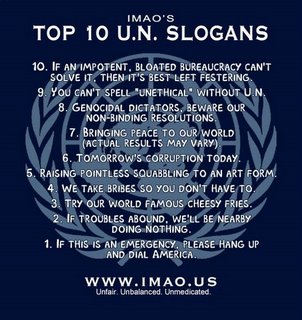WUI (Writing under the influence)
 Somebody once said we are all Americans, sometimes born in the wrong places.
Somebody once said we are all Americans, sometimes born in the wrong places.On a warm autumn day in 1986, while enjoying beer with my college buddies,
I decided to join my new homeland.
I've come to appreciate the ideals that helped create this great country.
Liberalism, political-correctness, multiculturalism and moral equivalence
are destroying it.
This old house Grovenet Wal*Mart Visiting Poland American wine better than French.
Tuesday, May 23, 2006
I may be blind; but they are blind and deaf

This house is just two blocks down from mine. I don't know people living in this house. The only thing I know is that they are professors at the Pacific University.
I also know they live in a parallel universe.
People at Powerline, on the other hand, recognize the reality:
The United Nations' Committee on Torture has called on the United States to close the Guantanamo Bay detention center. The panel said the U.S. should "cease to detain any person at Guantanamo Bay and close this detention facility, permit access by the detainees to the judicial process or release them as soon as possible."
The U.N. also criticized the practice of sending detainees to countries where torture is practiced, even where those countries have given assurances that terrorists will not be mistreated. Which raises a couple of questions: first, if the U.N. is concerned about the U.S. sending terror suspects to countries like Egypt, Jordan, etc., because their human rights record is so bad, what, if anything, has the U.N. tried to do about it? Has the U.N. taken any meaningful action against those countries, or is it only concerned about mistreatment of prisoners when it can be used as an opportunity to bash the United States?
Second, given that a large proportion of the Guantanamo prisoners come from the very countries the U.N. criticizes us for sending prisoners to, how exactly are we supposed to release them? A few weeks ago, there was publicity about a couple of Chinese prisoners at Guantanamo who were determined to be "innocent" in the sense that they had attended al Qaeda training camps in Afghanistan for the purpose of carrying out terrorist acts not against the U.S., but against China. The administration would have been happy to release the two men, but for obvious reasons they didn't want to go to China, and we didn't want to admit them to the U.S. The problem was finally solved when a third party agreed to take them.
This problem would be far more substantial if we were to accede to the U.N.'s demand that all of the Middle Eastern prisoners at Guantanamo be released:
Military officials have said that they are trying to release many of the roughly 490 detainees now being held in Guantanamo. They say that the effort has been slowed, however, by the difficulty in arranging for clear assurances that they will not be abused when they are returned to their country of origin — in many cases, Saudi Arabia or Yemen.
The U.N., of course, isn't doing anything to help solve that problem. Once again, one wonders whether this whole issue means anything to the U.N. other than an opportunity to foment anti-Americanism.
How many more disasters, scandals, raped girls and boys will it take for some university professors to understand what a miserable failure and utterly useless organization the U.N. is?
John at Powerline continues:
As the Iranian crisis deepens, is anyone looking to the U.N. for a solution? I hope not.
 This would be a much better UN flag to hang from one's porch. It's based on the IMAO's Top 10 U.N. Slogans shirt.
This would be a much better UN flag to hang from one's porch. It's based on the IMAO's Top 10 U.N. Slogans shirt.Archives
October 2004 November 2004 December 2004 January 2005 February 2005 March 2005 April 2005 May 2005 June 2005 July 2005 August 2005 September 2005 October 2005 November 2005 December 2005 January 2006 February 2006 March 2006 April 2006 May 2006 June 2006 July 2006 August 2006 September 2006 October 2006 November 2006 December 2006 January 2007 February 2007 March 2007 April 2007 May 2007 June 2007 July 2007 August 2007 September 2007 October 2007 November 2007 December 2007 January 2008 February 2008 March 2008 April 2008 May 2008 June 2008 July 2008 August 2008 September 2008 October 2008 November 2008 December 2008 January 2009 February 2009 March 2009 April 2009 May 2009 June 2009 July 2009 August 2009 September 2009 October 2009 November 2009 December 2009 January 2010 February 2010 March 2010 April 2010 May 2010 June 2010 July 2010 August 2010 September 2010 October 2010 November 2010 December 2010 January 2011 February 2011 March 2011 April 2011 May 2011 June 2011 July 2011 August 2011 September 2011 October 2011 December 2011 January 2012 February 2012 March 2012 April 2012 May 2012 June 2012 August 2012 September 2012 October 2012 November 2012 January 2013 February 2013 March 2013 May 2013 July 2013 September 2013 October 2013 November 2013 December 2013 January 2014 March 2014 April 2014 May 2014 June 2014 July 2014 August 2014 September 2014 October 2014 November 2014 December 2014 May 2015 September 2015 November 2015 December 2015 March 2016